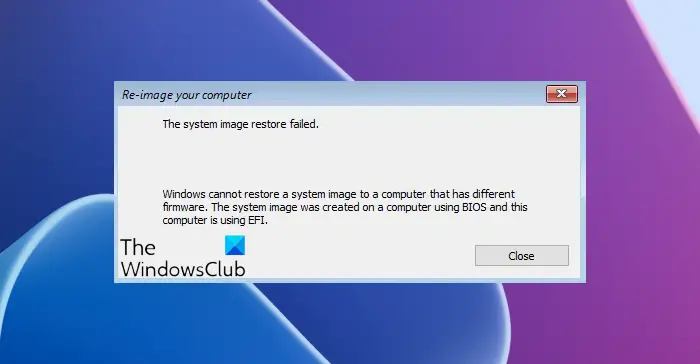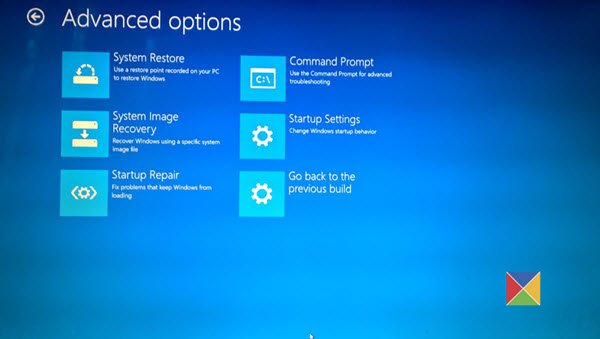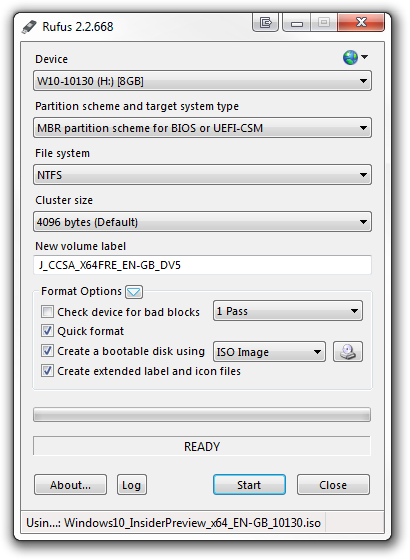When trying to restore a System Image to a computer, you may receive an error message The system image restore failed due to BIOS/UEFI accompanied by an explanation – Windows cannot restore a system image to a computer that has different firmware.

The system image restore failed. Windows cannot restore a system image to a computer that has different firmware. The system image was created on a computer using BIOS and this computer is using EFI.
This error is caused due to the incompatibility of the file system between the HDD having the recovery image flashed and the one getting flashed with the recovery image. Either both of them should be GPT or MBR.
Windows cannot restore a system image to a computer that has different firmware
We will be taking a look at the following methods to fix this issue on Windows 10:
- Reset the BIOS or the UEFI Settings to the defaults.
- Make sure both HDD or drives are compatible
- Enable Legacy or CSM boot support.
- Create a compatible bootable USB drive.
1] Reset the BIOS or the UEFI Settings to the defaults
Before you try to restore the system image, you can Reset the BIOS Configuration and check if that fixes your issues.
Resetting the BIOS or the UEFI Settings to the defaults will help you in reverting any abnormal setting toggle back to what it is supposed to be as a correct configuration.
Read: Windows cannot find a system image on this computer
2] Make sure both HDD or drives are compatible
You need to learn more about what type of file system you are running on your computer. Once you find that out, you need to create your bootable device on the same file system with Legacy or UEFI support being enabled depending on your file system selection.
If you want to boot using UEFI, make sure both the drives are set to be GPT. If you want to boot using the Legacy BIOS, make sure both the drives are set to MBR. There is no other choice. UEFI goes hand in hand with GPT and BIOS goes with MBR.
3] Enable Legacy or CSM boot support

This is applicable only if you are using a file system based on MBR.
Go to Settings > Update & Security > Advanced Startup options. When you click on Restart Now, it will reboot your PC, and offer you all these advanced options.
Select Troubleshoot > Advanced Options.
This screen of Advanced Options offers further options which include System Restore, Startup Repair, Go back to the previous version, Command Prompt, System Image Recovery, and UEFI Firmware Settings.
Enable Legacy Support. It is usually under the section synonymous to Boot.
Save changes and exit. The PC will now reboot.
Check if that fixes your issues.
4] Create a compatible bootable USB drive
You can use Rufus to create a bootable USB device.
Under the section named as Partition scheme and target system type, you can select one of the following:

- GPT partition scheme for UEFI computer.
- MBR partition scheme for BIOS or UEFI-CSM.
You can select either of the two options according to the compatibility of your image.
Related read: The system image restore failed – 0x80070057.